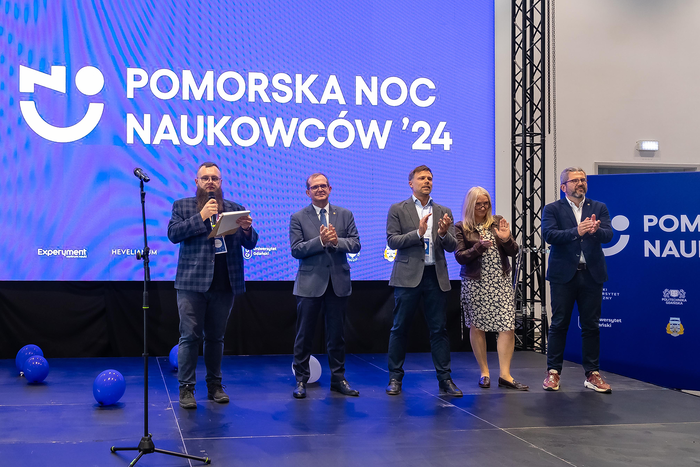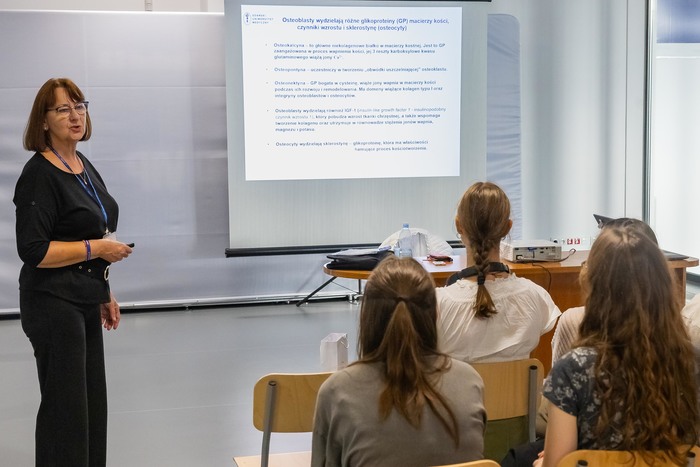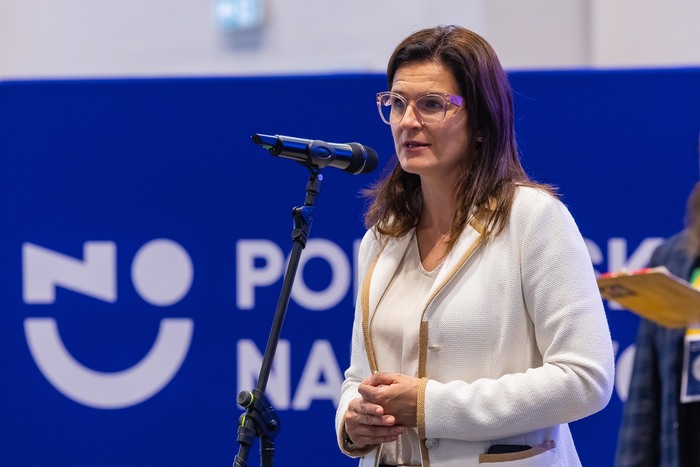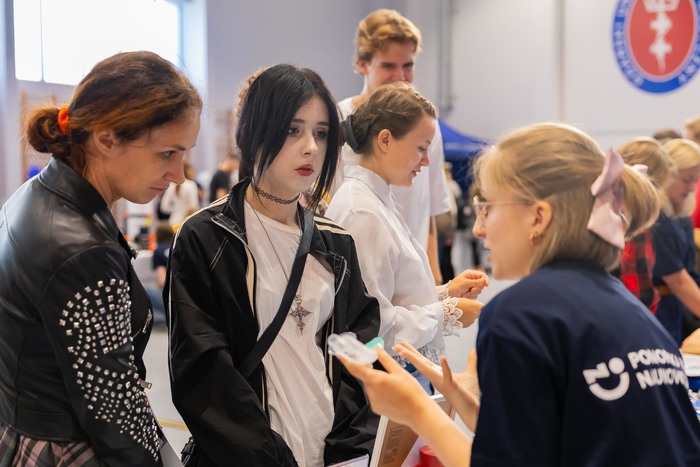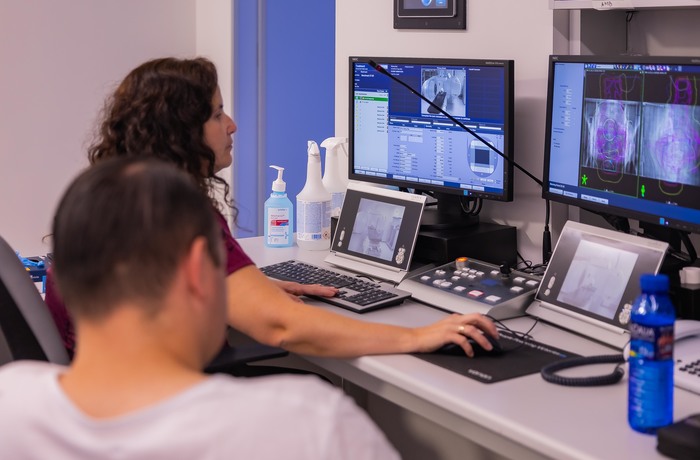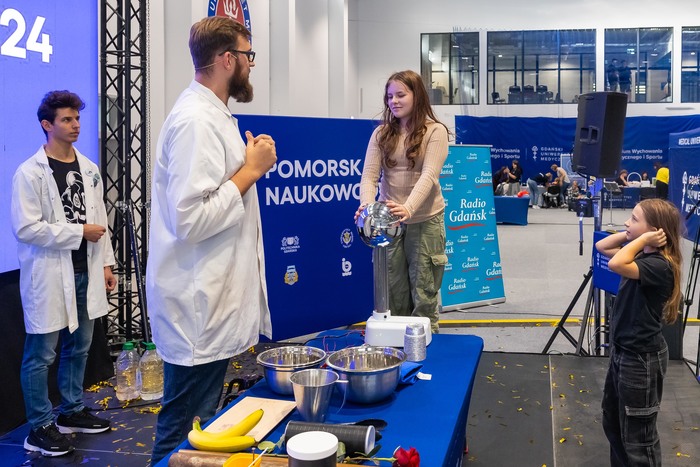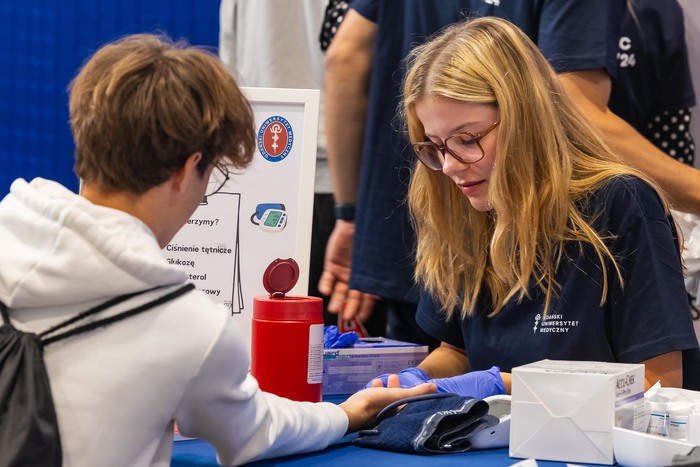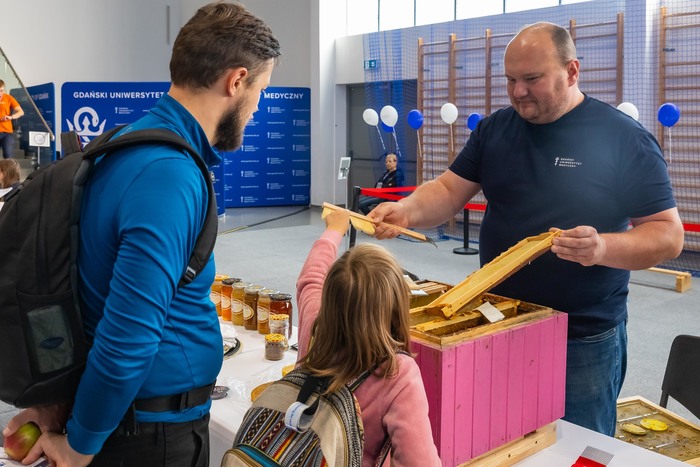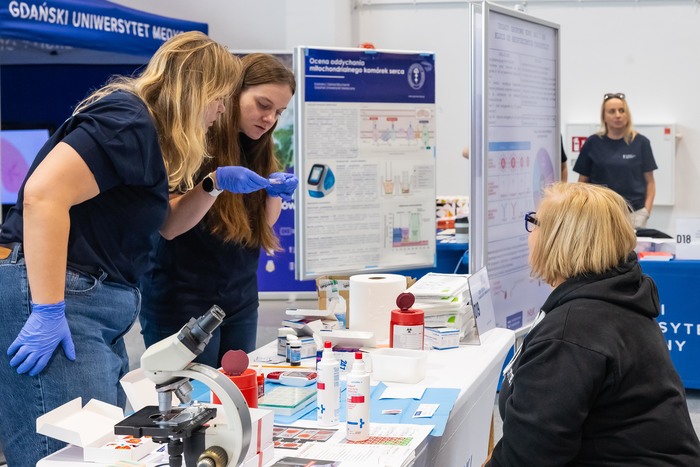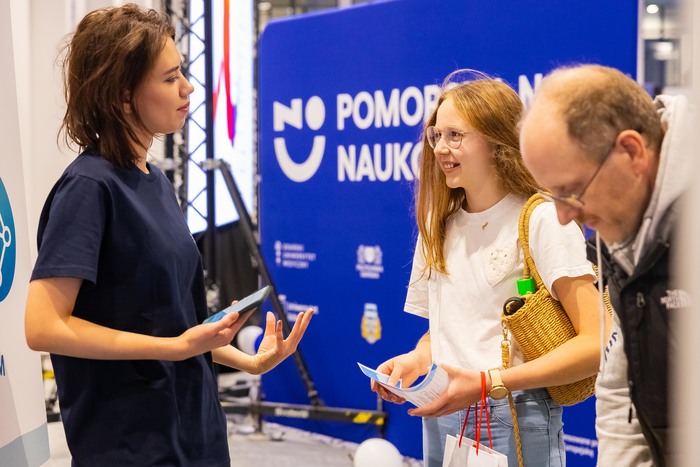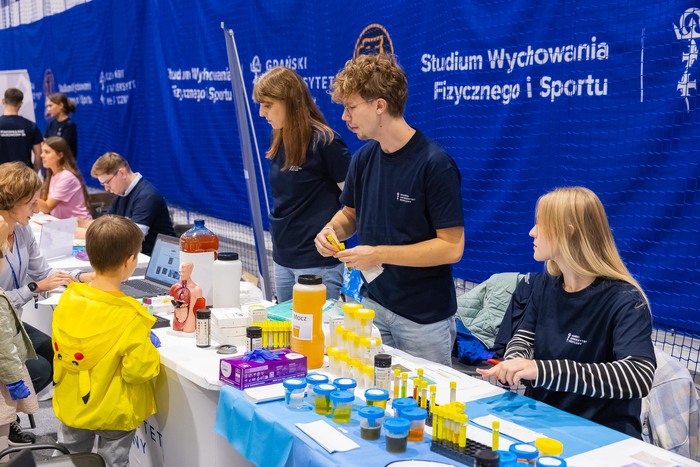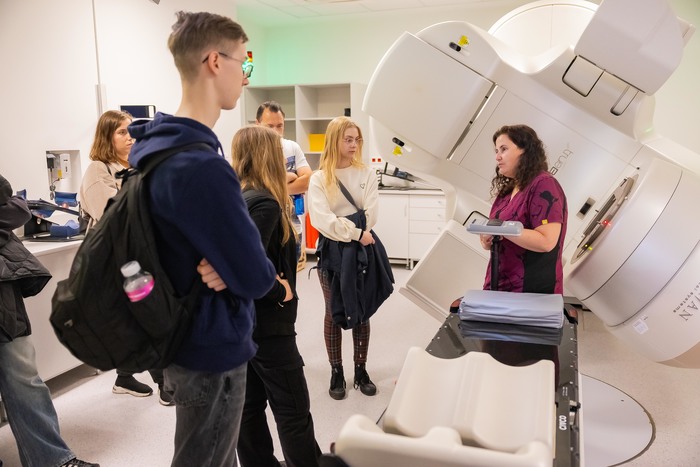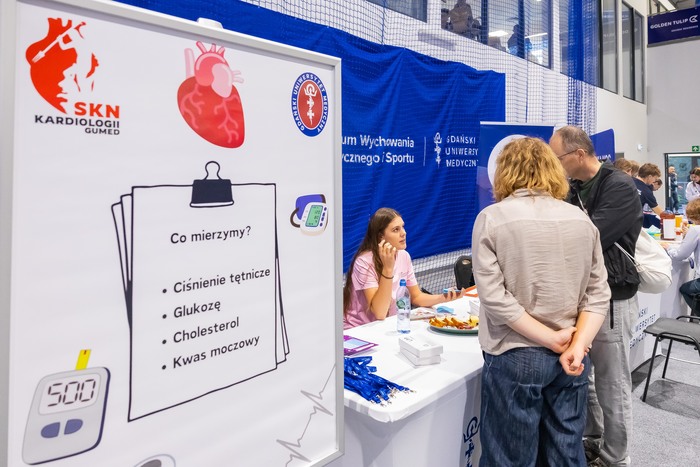The second Pomeranian Researchers’ Night at the MUG made history
3.10.2024
It was a fantastic night, full of science, fun and smiles. The second Pomeranian Researchers’ Night has gone down in history. Nearly 200 events, including scientific demonstrations, laboratory tours, workshops and lectures took place in 7 locations across the Tri-City.
On this one night of the year, scientists stepped away from their daily routines and ongoing research to open their workplaces to the general public, in order to show that science is interesting, fascinating and, above all, accessible to everyone, and, most importantly, is not closed only in wise books and mysterious laboratories. What was shrouded in a mist of secrecy was clarified, and non-trivial questions found answers.
On 27th September , the Medical University of Gdańsk was visited by more than 1,000 people, who were offered scientific booths, lectures and workshops. More than 50 events were held on the premises of our University. Everyone found something for themselves.
We began with a welcome and opening ceremony, which was decorated with confetti fountains. The host, of course, was Prof. Michal Markuszewski, Rector of the MUG. Together with the Rector, the Pomeranian Night of Scientists was opened by Prof. Marcin Skrzypski, substantive coordinator of the event, Experyment Science Centre director Alicja Harackiewicz, Hevelianum director Paweł Golak. Also with us were the mayor of Gdańsk Aleksandra Dulkiewicz, the director of the Health Department of the Provincial Office Jerzy Karpiński and many distinguished guests.
In the presentation part, the lecture ‘Breast Cancer in Artificial Intelligence Network’ was given by Maciej Bobowicz, M.D., Ph.D. from the Department of Radiology at the MUG. He was followed by a performance by the Hevelianum with the best experiments from its repertoire. We saw the invisible, tamed extreme cold, and conducted spectacular experiments. Alicja Stanislawska, Ph.D. Eng.from the Gdansk University of Technology then invited us to the show ‘Nanocellulose: Bacteria in the Service of the Future’, where we discovered how these microscopic organisms have revolutionised our future. After the demonstrations things got a bit more serious, as we began debates on cancer. One of the moderators was Prof. Jacek Jassem, long-time head of the Department of Oncology and Radiotherapy at the MUG, who gave a lecture entitled ‘Are we doomed to cancer’. In the metabolomics panel, which included Prof. Jędrzej Antosiewicz, Paulina Metelska, Ph.D., and Marta Stankiewicz, Ph.D., there was a discussion of physical activity and diet in cancer prevention. Cervical cancer, screening and treatment were discussed by Anna Kowalczyk, Ph.D., Dagmara Mazurkiewicz-Klasa, Ph.D. Hygiene and mental health in cancer prevention were discussed by Sylwia Barsow, Ph.D., Assoc. Prof. Dr. Habil. Magdalena Błażek, Assoc. Prof. Dr. Habil. Dorota Kilańska, and Prof. Agnieszka Zimmermann. The panel on lung cancer featured Prof. Jacek Jassem, *Dr. Habil. Tomasz Marjański, and Assoc. Prof. Dr. Habil. Marcin Skrzypski. In the final panel of the night, Piotr Spychalski, M.D., Ph.D. and *Prof. Marcin Skrzypski discussed intestinal and pancreatic cancer and whether cancer can be detected in blood. The panels were moderated by Tatiana Slowi of Radio Gdańsk. Importantly, in-between lectures, it was possible not only to ask the speakers questions in public, but also to talk to them in person.
The lectures and workshops were a real feast for those interested in science. From learning about the secret life of plants, marine bacteria, parasites, genetic diseases in images, oncological issues, diet, obesity prevention, human prenatal development through crime scene mysteries and forensic genetics to aphrodisiacs, endorphins and relaxation techniques.
At the science booths, visitors could discuss, among other things, heart issues, see how heavy a pregnant woman’s belly is, learn the principles of first aid, create a “supplement” capsule on their own, and realise through simple experiments that the most powerful medicine is hygiene. Among the proposals were a night tour of the Department of Forensic Medicine, whose corridors feature display cases with anatomical specimens, and an oncology field game for the whole family. Our staff and students were able to tailor the way they conveyed information and its content to both adult and quite young audiences in such a way that they aroused great interest in even the most difficult topics. Some, including families with children, were with us from the beginning of the event until the very end.
Researchers’ Night is a popular science event that has been held for many years in European Union countries on the last Friday of September. The first Pomeranian Researchers’ Night, took place in the Tri-City area on 29th September 2023, and was attended by nearly 7,000 people.
This year’s event in the Pomeranian region was coordinated by the Medical University of Gdańsk, and its partners were Pomeranian universities – the University of Gdańsk, Gdańsk University of Technology, Gdynia Maritime University, the Polish Naval Academy, a scientific institute – the Institute of Oceanology of the Polish Academy of Sciences, and two Tri-City science centre ֪– Experyment in Gdynia and Hevelianum in Gdańsk. It is thanks to our cooperation that this great event could be realised. The organisation of the Pomeranian Researchers’ Night was possible thanks to the funds we received from the European Commission, from the Horizon Europe programme for the editions of the event, scheduled for 2024 and 2025.
The financial and organisational support for the event was also provided by the MUG’s Office of the ‘Excellence Initiative – Research University’ Program.
Photos – Paweł Sudara/MUG
Archives
- Academic Year 2024/2025
- Academic Year 2023/2024
- Academic Year 2022/2023
- Academic Year 2021/2022
- Academic Year 2020/2021
- Academic Year 2019/2020
- Academic Year 2018/2019
- Academic Year 2017/2018
- Academic Year 2016/2017
- Academic Year 2015/2016
- Academic Year 2014/2015
- Academic Year 2013/2014
- Academic Year 2012/2013
